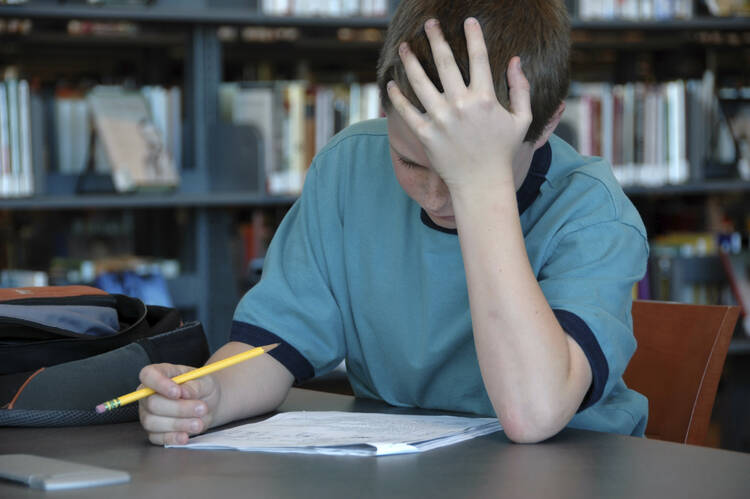Yesterday the U.S. Senate passed, by a vote of 85 to 12, with a rare burst of bipartisan cooperation, the Every Student Succeeds Act, replacing the No Child Left Behind Act, which for 14 years has set the standards by which public schools throughout the nation were judged. The effect of the new law is to return to the states the power and responsibility of preparing the generation for either higher education or the job market, or both. In recent years two documents have, on the national level, attempted to raise academic standards in public grammar and high schools: the No Child Left Behind Act (NCLB), passed under George W. Bush in 2001, and the Common Core, a 2010 initiative by governors to meet a higher standard in language arts and math.
To measure progress, both programs imposed frequent testing and, in some cases, used the results of the tests to evaluate not just the student’s ability to read, write, count and calculate, but to judge the teacher’s ability to teach. But the academic world on any level does not embrace change. Teachers and administration like to do things the way they do them. Tests themselves do not reveal why the students fail. Often they just don’t study. Often, too, they come from destructive home conditions—poverty, unemployment, gang violence, an absent father and homelessness—that cripple the education.
Meanwhile, obsessed with the collective test scores, the teachers have been forced to “teach to the tests,” rather than challenge the imagination with the short story or poem. Lily Eskelsen Garcia, president of the National Education Association, the country’s largest teachers union, told The New York Times (12/10) that easing up on these rules would keep more teachers on the job. They had been leaving the classroom disillusioned by “test and punish.”
Senator Lamar Alexander, who leads the education committee, predicted that returning these issues to local control “will unleash a floor of excitement and innovation and student achievement that we haven’t seen in a long time.”
Maybe. But are all 50 states natural boiling hotbeds of intellectual creativity? Are the state legislatures bursting with assembly men and women themselves trained at the best universities, with book-lined offices, where educational classics—Gilbert Highet and Jacques Barzun—challenge readers to rethink how to teach?
Others worry that the states will simply return to their old ways when they ignored the needs of struggling students. According to Georgetown University’s Thomas Toch, “Many students were left behind in the era of local control, and now we’re going back to that era. It puts school districts in charge of fixing failing schools, the same school districts that are running the failing schools now” (Washington Post, 12/10). Conor Williams, a senior researcher in New America's Education Policy Program, writes this decision is “a brilliant piece of political posturing…. It’s a clear system that serves the political needs of most members of Congress and protects a variety of special interests groups…. It takes a relatively simple federal accounting system, removes the teeth, and layers on a bunch of vague responsibilities for states…. Just because something is a compromise doesn’t mean that it will do good things for children.”
Right now the 10 states with the worst schools, according to Education Week, are: California, South Carolina, Louisiana, Alabama, Idaho, Arizona, Oklahoma, New Mexico, Nevada and Mississippi. Free from the federal government’s goals and guidance, where will these struggling schools be three years from now?








